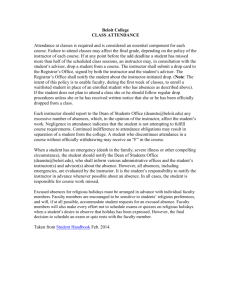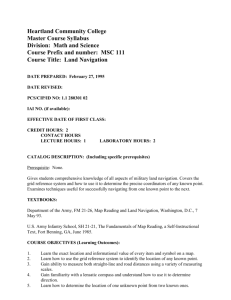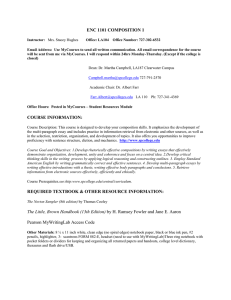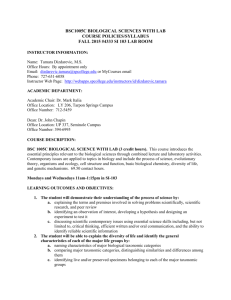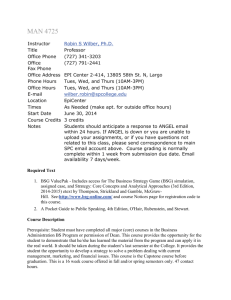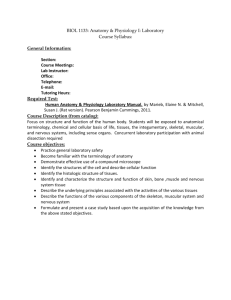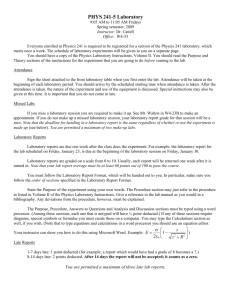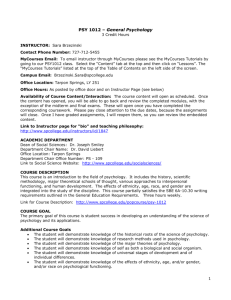Course Syllabus - St. Petersburg College
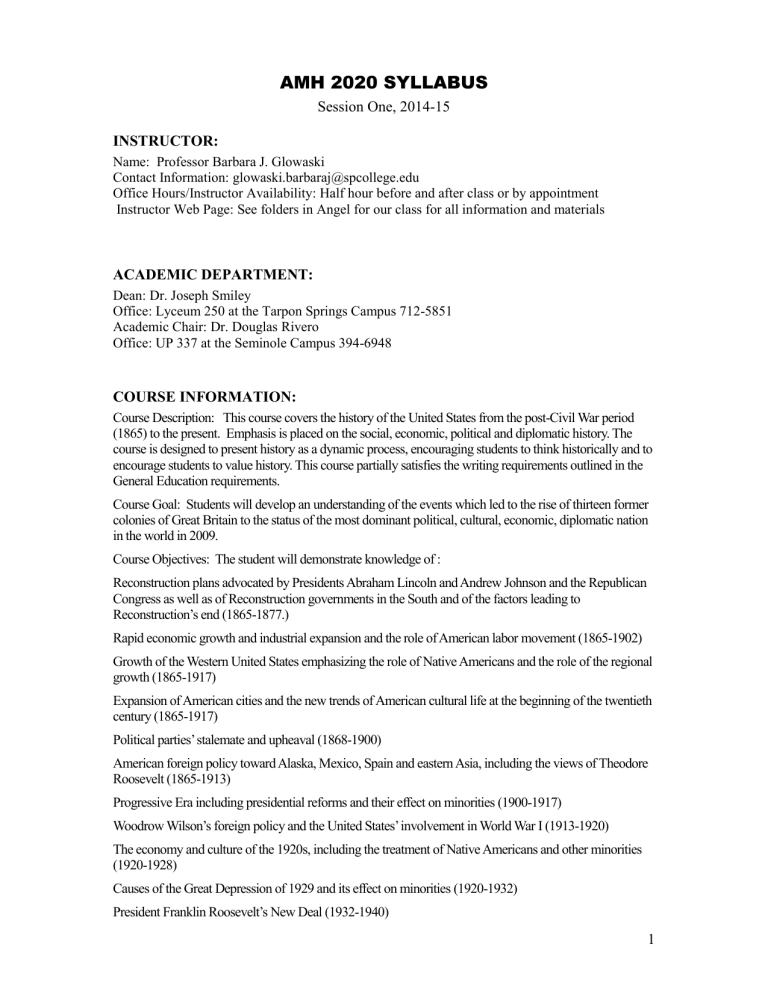
AMH 2020 SYLLABUS
Session One, 2014-15
INSTRUCTOR:
Name: Professor Barbara J. Glowaski
Contact Information: glowaski.barbaraj@spcollege.edu
Office Hours/Instructor Availability: Half hour before and after class or by appointment
Instructor Web Page: See folders in Angel for our class for all information and materials
ACADEMIC DEPARTMENT:
Dean: Dr. Joseph Smiley
Office: Lyceum 250 at the Tarpon Springs Campus 712-5851
Academic Chair: Dr. Douglas Rivero
Office: UP 337 at the Seminole Campus 394-6948
COURSE INFORMATION:
Course Description: This course covers the history of the United States from the post-Civil War period
(1865) to the present. Emphasis is placed on the social, economic, political and diplomatic history. The course is designed to present history as a dynamic process, encouraging students to think historically and to encourage students to value history. This course partially satisfies the writing requirements outlined in the
General Education requirements.
Course Goal: Students will develop an understanding of the events which led to the rise of thirteen former colonies of Great Britain to the status of the most dominant political, cultural, economic, diplomatic nation in the world in 2009.
Course Objectives: The student will demonstrate knowledge of :
Reconstruction plans advocated by Presidents Abraham Lincoln and Andrew Johnson and the Republican
Congress as well as of Reconstruction governments in the South and of the factors leading to
Reconstruction’s end (1865-1877.)
Rapid economic growth and industrial expansion and the role of American labor movement (1865-1902)
Growth of the Western United States emphasizing the role of Native Americans and the role of the regional growth (1865-1917)
Expansion of American cities and the new trends of American cultural life at the beginning of the twentieth century (1865-1917)
Political parties’ stalemate and upheaval (1868-1900)
American foreign policy toward Alaska, Mexico, Spain and eastern Asia, including the views of Theodore
Roosevelt (1865-1913)
Progressive Era including presidential reforms and their effect on minorities (1900-1917)
Woodrow Wilson’s foreign policy and the United States’ involvement in World War I (1913-1920)
The economy and culture of the 1920s, including the treatment of Native Americans and other minorities
(1920-1928)
Causes of the Great Depression of 1929 and its effect on minorities (1920-1932)
President Franklin Roosevelt’s New Deal (1932-1940)
1
America’s entry into World War II and the defeat of the Axis powers (1933-1945)
President Harry Truman’s foreign policy and the impact of the Cold War on domestic American politics
(1945-1953)
“American Dream” and the struggle by African-Americans to end discrimination (1952-1960)
President John F. Kennedy’s foreign and domestic policies and the growth of the counterculture (1960-
1968)
United States involvement in Viet Nam and the revisions of the Democratic and Republican parties (1960-
1975)
Presidents Jimmy Carter and Ronald Reagan and their visions and successes in foreign policy and domestic programs (1974-1986)
Presidents George H. W. Bush, Bill Clinton and George W. Bush and their crises and successes in foreign and domestic programs as America approached and entered the twenty first century.
Prerequisites (Course & Skill Set): ENC 0020 and REA 0002 or EAP 1695
REQUIRED TEXTBOOK & OTHER RESOURCE INFORMATION:
Required Textbook: Of the People A History of the United States Volume II by Oakes, McGerr,
Lewis, Cullather and Boydston published by Oxford University Press, 2010
ISBN Number: 9780199924684
Library: http://www.spcollege.edu/central/libonline/ .
MEETING INFORMATION:
Course Location: PW 705
Meeting Days: Monday and Wednesday
Class Times: 11:00 a.m. to 12:15 p.m.
IMPORTANT DATES:
Course Dates: Exams are scheduled for September 14, October 7, November 2, and December 9,
2015. December 2nd is the deadline for receiving credit for submitting historical museum visit reports as well as all other work for this class.
Drop/Add: August 17 through August 22, 2015
Withdrawal Date: Last day to receive a final grade of W is Thursday, October 22, 2015.
Financial Aid: http://www.spcollege.edu/central/SSFA/HomePage/calendar.htm
ATTENDANCE:
The college-wide attendance policy is included in the Syllabus Addendum http://www.spcollege.edu/webcentral/policies.htm
.
Active participation is this class is defined as attending classes, completing exams, submitting completed terms and questions sheets as part of each chapter review, and taking part in class discussions as well as asking questions. Class attendance is a key component in student success.
Therefore, students are expected to attend all classes and to be in their seats at the time class
2
starts. Each student starts out with 90 points for attendance at the start of the session. Roll will be taken every day, usually at the start of class, using both a seating chart and a daily sign-in sheet.
Students who arrive after roll has been taken must notify me of their late arrival or the absence will be counted and the points deducted. Unexcused absences will result in the loss of 3 points per class period. Absences may be excused due to ill health providing that medical verification is presented or verification of absence due to jury duty or educational requirements is provided. All other absences will be treated as unexcused and points will be deducted as indicated. Students who are late to class will lose 1-2 point(s) per class.
GRADING:
After each of the four exams, a grade scale will be developed based on 100 points (100 questions=100 points). In some instances, the exam scale may be curved and will be posted in the classroom as well as on
MyCourses. Points for attendance and responding to the chapter review questions will not be curved and will be based on a maximum of 90 and 45 points respectively. Fifteen points will be awarded for the report on your visit to a historical museum. (A list of approved museums in Pinellas, Hillsborough and nearby counties will be provided.) Your final grade in the course will be based on a maximum of 550 points (or less if exam scores are curved) with the traditional 90-100% (A), 80-89% (B), 70-79% (C), 60-69% (D) and 0-59% (F). Extra credit opportunities will also be offered throughout the session.
ASSIGNMENTS:
All course assignments have been posted on MyCourses. Any changes made in the assignments or due dates will be posted there or sent out by email. It is imperative that you check your
MyCourses email at least once a day. Please see me if you do not know how to do this. Finally, completion of the 2,000 word Gordon Rule writing assignment will be discussed in class and involved completion of the chapter review forms.
STUDENTS’ EXPECTATIONS AND INSTRUCTOR’S EXPECTATIONS:
Enrolling in college is a very different experience than going to high school. Both student and instructor expectations are significantly different and those differences should be noted. What differentiates the two experiences is the expectation of student preparedness, inquiry, research, a synthesis of the information learned and the testing of new ideas and arguments. Accordingly, all members of the learning community should demonstrate respect for the endeavor itself, and more importantly, for each other. Therefore, rudeness or any form of disruptive behavior will not be tolerated. Please do not eat, drink (except water) or smoke in the classroom. Inappropriate language or gestures are also not acceptable behavior. The use of cell phones or beepers during class time is prohibited, as they are disruptive to other students as well as to the instructor. All of these behaviors are contrary to the Board of Trustee policy in 6Hx23-4.461, Student
Affairs and could result in removal from the class. In the event you are dealing with an illness or lifethreatening emergency, please notify the instructor prior the start of class to make special arrangements. If you feel at any time that another student is interfering in your education, let me know
STUDENT SURVEY OF INSTRUCTION:
The student survey of instruction is administered in courses each semester. It is designed to improve the quality of instruction at St. Petersburg College. All student responses are confidential and anonymous and will be used solely for the purpose of performance improvement.
Please take the time to complete it when you receive notification it is available near the end of the session.
3
4
